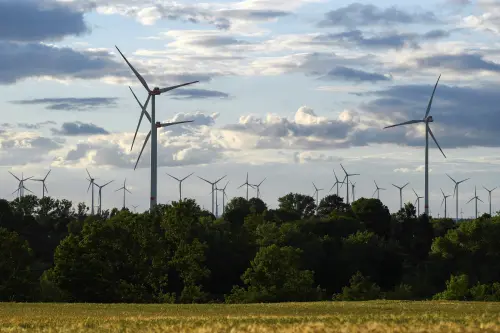The European Commission is set to propose a series of measures next week to support EU industries in remaining competitive while reducing their carbon footprint, according to a leaked draft of the package released on Tuesday.
European manufacturing is facing challenges such as sluggish demand, competition from cheaper Chinese counterparts, and potential impacts from U.S. President Donald Trump's actions on steel and aluminum imports.
Key aspects of the EU's 'Clean Industrial Deal' include plans to address Europe's struggling domestic industries. Energy prices for European industries are currently up to three times higher than those in the U.S., prompting pressure on Brussels to assist local businesses in staying competitive.
The leaked EU document reveals initiatives such as an European Investment Bank scheme, slated to launch by March's end, to provide guarantees for smaller companies engaging in power purchase agreements with renewable electricity generators. This move aims to secure stable energy supplies at predictable prices.
Furthermore, the EIB will extend support to manufacturers of power grid components to modernize Europe's aging energy infrastructure.
Proposals to be presented in the fourth quarter of the year will offer expedited permits to energy-intensive industries, fostering investments in clean industrial projects.
Brussels plans to advise EU member countries to reduce electricity taxes to the legal minimum, in order to lower consumer costs in the short term. Additionally, adjustments are on the horizon for the EU's gas storage filling targets and state aid rules to facilitate investment in clean industrial projects.
In an effort to promote green initiatives, EU governments may grant tax incentives, including accelerated depreciation, for clean industrial investments. Simplified EU state aid rules, to be issued by July, will support these changes.
To encourage locally made products, the EU will revamp public procurement rules in 2026, introducing buy-Europe criteria.
The EU will continue to employ anti-dumping or anti-subsidy duties to counter the influx of inexpensive imports of electric vehicles and other clean technologies, particularly from China.
The bloc's carbon border levy will undergo revisions before its implementation in 2026, potentially covering only 20% of companies to reduce administrative burdens, with revenues from the EU carbon market being channeled into funding industrial CO2-reduction projects.
